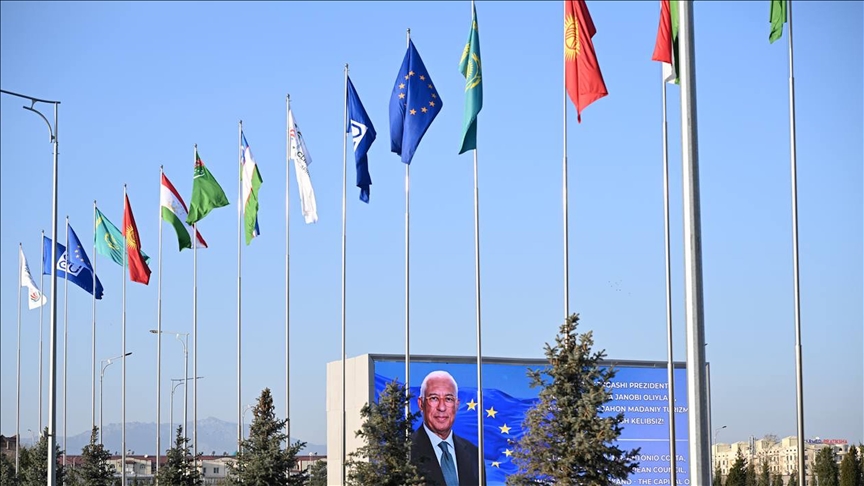EU-Central Asia relations elevate to level of strategic partnership
1st Central Asia-EU Summit in Uzbek city of Samarkand concludes with signing of joint declaration
 The first EU-Central Asia Summit in Samarkand
The first EU-Central Asia Summit in Samarkand
MOSCOW
The first-ever Central Asia-EU Summit concluded on Friday in the Uzbek city of Samarkand with a joint declaration elevating the relations to a strategic partnership and reaffirming the deepening of cooperation in the face of evolving geopolitical challenges.
Both sides reaffirmed their support for international law, the UN Charter, and the sovereignty and territorial integrity of all states, emphasizing peaceful conflict resolution, including a just peace in Ukraine.
The parties agreed to launch a dialogue on counter-terrorism and violent extremism, focused on cybersecurity, border control, chemical, biological, radiological, and nuclear defense threats, as well as combating radicalization and human trafficking.
Representatives of the EU and Central Asian countries also addressed the situation in Afghanistan, expressing their commitment to continued support for a peaceful and inclusive Afghanistan, highlighting women’s rights, education, and humanitarian aid.
They also agreed to continue cooperation on preventing sanctions circumvention, especially re-exports of high-priority goods.
The participants of the meeting also welcomed progress in the resolution of the Kyrgyz-Tajik border issues and Central Asian countries' efforts toward stronger integration with EU support.
The parties pledged to work on stronger trade, investment, and energy transition cooperation, aligned with the EU’s Global Gateway Strategy, with the EU pledging €10 billion ($11.04 billion) in investments to enhance transport and infrastructure, especially along the Trans-Caspian and Middle Corridors.
They also addressed climate change, with all Central Asian states joining the Global Methane Pledge and the EU's promising cooperation on water use, Aral Sea restoration, and sustainable mountain development.
The implementation of the summit outcomes and continuing dialogue will be ensured via the EU-Central Asia Civil Society Forum and upcoming ministerial meetings.
The meeting saw the leaders of Kazakhstan, Kyrgyzstan, Tajikistan, and Turkmenistan represent Central Asia, while the EU was represented by European Council President Antonio Costa and European Commission President Ursula von der Leyen.


